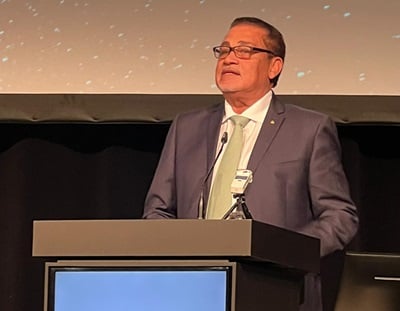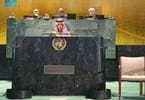This resolution provides a unique opportunity for mankind to advance and utilize science in the pursuit of sustainable development and promote a new culture of science that involves everyone. UNESCO, entrusted as the lead agency by the UNGA, is actively developing and sharing a clear vision and dedicated mission for the Sciences Decade through extensive consultations with Member States, partners from other UN agencies, international scientific unions, science academies, private sectors, and NGOs.
The International Decade of Sciences for Sustainable Development Forum occurred on April 25 in Beijing, China. UNESCO, along with the Ministry of Science and Technology of the People’s Republic of China and the People’s Government of Beijing Municipality, co-organized this forum as part of the 2024 ZGC Forum. The forum’s main goal was to promote the Science Decade by involving the scientific community, government entities, the private sector, and civil societies in discussions about its vision and mission. Thirteen distinguished scientists, experts, and senior government officials from nine countries shared their perspectives, expectations, advice, and approaches for implementing the Science Decade. The forum also included a high-level dialogue on engaging society in fostering a culture of science, with the participation of around 150 attendees from over 20 countries.
“One of the goals of the Decade is to advance scientific knowledge as a powerful force for humankind to achieve the goals of sustainable development,” said Shahbaz Khan, director of UNESCO Multisectoral Regional Office for East Asia, “China, especially innovative cities like Beijing with exceptional scientific minds, is uniquely positioned to contribute to this mission. And I have personally witnessed how China is using basic science to advance the environment and society. Furthermore, this forum has provided a unique platform for international scientific cooperation, enabling us to use scientific capabilities from around the globe to build a sustainable future together. We hope this forum will serve as a springboard for groundbreaking collaboration and knowledge exchange, propelling us towards a brighter future.”
According to Hu Shaofeng, the head of the Division of Science Policy and Basic Sciences at UNESCO’s Natural Sciences Sector, science for sustainable development encounters various obstacles. These challenges involve the inadequate acknowledgment of basic science’s significance, insufficient funding, and the necessity to harmonize and support different sustainable development goals. Hu urges the enhancement of knowledge-sharing initiatives through policies that promote technological innovation, the promotion of open science for knowledge-sharing, and the improvement of resources in basic science, technology, research, innovation, and engineering. Ultimately, these efforts will benefit people through science.
Quarraisha Abdool Karim, president of the World Academy of Sciences (TWAS) and associate scientific director of the Centre for the AIDS Programme of Research in South Africa (CAPRISA), highlighted that through continuous efforts and collaborative work, significant experience has been gained in the prevention and treatment of infectious diseases such as HIV/AIDS and COVID-19, including providing evidence-based guidance for decision-making and making scientific prevention measures and treatment methods more equitable and accessible to the public. What’s more, the focus will remain on offering scientific advice to decision-makers, refining relevant laws related to testing, quarantine, and vaccination, enhancing epidemic prevention and monitoring, promoting public communication and education, and fostering international scientific cooperation to promote a sustainable future for all.
According to Guo Huadong, an academician of the Chinese Academy of Sciences and Director-General and professor of the International Research Center of Big Data for Sustainable Development Goals (CBAS), open data is a key to open science.
He stated that open data facilitates the development of open science by enhancing the transparency, reproducibility and collaboration of scientific innovation activities, thereby increasing the value of science for societal development. Guo emphasized the need of accelerating the construction of big data infrastructure, strengthening top-level design, creating comprehensive data ecosystems, and developing innovation-driven development models based on open science, enabling big data infrastructure to promote the sustainable development of open science services.
Anna María Cetto Kramis, professor of Universidad Nacional Autonoma de Mexico (UNAM) and Chair of the UNESCO Global Committee on Open Science, emphasized strengthening the capability for talents and institutions. She underscored the importance of establishing a comprehensive open science infrastructure and addressing societal issues through a fairer, more diverse and inclusive scientific system. This approach aims to create a healthier future for generations to come.
Gong Ke, executive director of the Chinese Institute for the New Generation Artificial Intelligence Development Strategies and the Director of Haihe Laboratory of Information Technology Application Innovation, highlighted that one of the key objectives of the “Sciences Decade” is to foster a scientifically literate population. To achieve this goal, he suggests employing strategies such as designing top-level systems, utilizing technology and digital resources, monitoring the progress of public scientific literacy, and launching public awareness campaigns. These efforts aim to ensure that individuals from diverse cultural backgrounds understand of scientific principles and are well-informed regarding to relevant decision-making processes.
Carlos Alvarez Pereira, Secretary-General of the Club of Rome, emphasized the need for ethical-driven knowledge development and utilization to achieve the United Nations Sustainable Development Goals. He called for advancing interdisciplinary educational practices, maximizing the multifaceted role of science in societal advancement, optimizing existing digital infrastructure, fostering a global interdisciplinary network, boosting investment in scientific innovation for sustainable development, and fostering harmonious coexistence between human and the planet.
2024 marks the 10th anniversary of the construction of the Beijing Science and Technology Innovation Center and the first year of the “International Decade of Sciences for Sustainable Development”, both of which are highly compatible in terms of enhancing public scientific literacy, promoting international scientific cooperation, and strengthening support for basic science. The Science Decade echoes the annual theme of the 2024 ZGC Forum, “Innovation: Building a Better World”, and further demonstrates the internationalization of the ZGC Forum.























